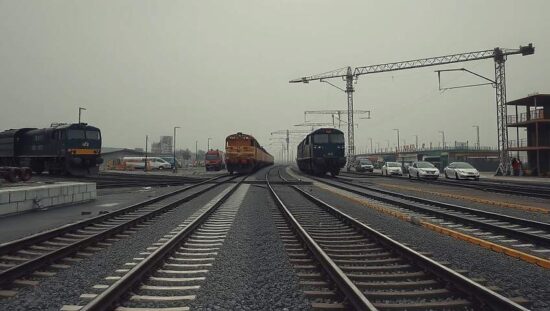A stark disparity is emerging in Germany’s infrastructure investment, with the nation’s railway network lagging significantly behind the expansion of its road infrastructure. A recent analysis by the German Freight Railways Association (DFV), reported by the Tagesspiegel, reveals that just 44 kilometers of new rail lines are projected to enter service this year. This stands in contrast to the roughly 9,000 kilometers of roadway slated for expansion.
The DFV’s critique underscores a long-standing issue: decades of political promises regarding rail infrastructure development have consistently failed to materialize, instead favoring investment in road construction. “Federal governments have been promising the expansion of the rail network for decades – and delivering concrete for the road” stated DFV Managing Director Peter Westenberger. “The imbalance is grotesque.
The paltry 44 kilometers of new railway – spread across four distinct projects – highlight the inadequacy of current efforts. These include a 17-kilometer reconstruction of the Dresden rail line connecting Berlin-Südkreuz to Blankenfelde, intended to expedite travel to the airport and Dresden; 10 kilometers built between Zeithain and Leckwitz in Saxony; 11 kilometers in Bavaria between Eggolsheim and Strullendorf; and 6 kilometers in Baden-Württemberg between Mühlheim and Schliengen.
The shortfall is particularly damning considering previous commitments. In 2016, then-Federal Minister of Transport Alexander Dobrindt (CSU) pledged the construction of 3,121.5 kilometers of new rail lines under the “priority need” framework by 2030. To date, according to the DFV, only 540.5 kilometers have been added and importantly, this figure includes modernized existing lines, like those electrified, masking the true lack of new track.
The continued prioritization of road construction raises serious concerns about Germany’s commitment to sustainable transportation and climate goals, as well as questions about the efficacy of current infrastructure planning and execution. The chronic underinvestment in rail is not only hindering economic potential but also potentially undermining the nation’s broader environmental objectives, prompting calls for a fundamental reassessment of infrastructure policy.





